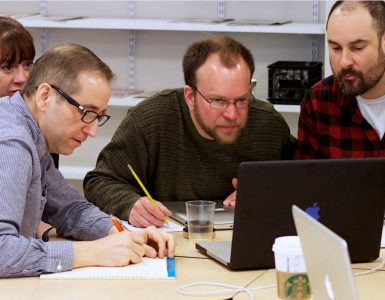According to a recent survey, most event planners love what they do. They report that the creativity of the job, flexibility in work hours, and the opportunity to visit new places are all factors that contribute to their positive satisfaction levels.
These same planners state that during an event month almost half are working 15 to 20-hour days and are getting an average of five hours of sleep each night. They also report an increased amount of stress related to looming deadlines, budget constraints, and revenue goals, as well as anxiety when dealing with the high expectations of speakers, vendors, sponsors, guests and more. Over an extended period of time, this elevated amount of stress is not a healthy lifestyle for anyone. Burnout is a very real issue in the event industry.
One of the best ways to avoid burnout is to maintain a healthy work/life balance. But what does that mean? According to Wikipedia, the term “work/life balance” is used to describe the balance that a person needs between the time allocated for work and other aspects of life such as personal interests, family, and social activities. In other words, a healthy work/life balance is unique for each person. I may need to sleep 8 hours a night and work less than 50 hours per week while another person may be fine with 6 hours of sleep per night and a longer work schedule. We all need to find what works for us.
While it may seem to darn near impossible to find a good work/life balance when you are an event planner, there are things you can do to avoid burnout. Here are six easy steps to better balance in your life.
Standardize Your Schedule
Planning events may not lend itself to a standard 9 to 5 schedule but there are still ways to establish routine working hours. When not running an event, try to maintain a set schedule. Make sure to clearly communicate your schedule with staff and stick to it no matter what. This suggestion also applies to your off-time. Go to bed and wake up at the same time every day, even on days off. Studies show that regulating your circadian rhythms makes you more relaxed and calmer.
Unplug When You Can
Even during the busy season, make a rule to completely disconnect from your computer or phone after a certain time every day. When you have a day off, resist the urge to check email. Focus on other things that make you happy and get some rest. You’ll be better able to deal with the stress of work when you go back.
Share the Work
If you have a team, delegate tasks so that everyone shares in the responsibility of getting the work done. Delegating shows staff members that you have faith in them and builds a team dynamic that can be very powerful. And the bonus is that not all of the strain falls on you.
Manage Expectations
Create a manageable time frame for answering inquiries and be very clear with both internal and external partners as to what it is. Make sure to stay consistent. If you promise that you will return a call within one business day, do that every time. This time frame will also help you plan your day more effectively. Establish a specific schedule for answering emails and calls (such as after lunch) and reserve time in your calendar to get it done.
Take the Vacation
It’s imperative for your mental and physical health that you take vacation time. Nearly two-thirds of Americans report that they won’t be taking a vacation this year. Many Americans are giving back their vacation days, according to a study conducted by Oxford Economics for the U.S. Travel Association. It’s up to you how often and for how long you take your vacation days but most experts suggest that we take at least one annual vacation. Vacations are a time for you to recharge your batteries, escape the stress of the job, and spend time with loved ones. Place it on your schedule just like a meeting. That way you can make sure it happens.
Do All Healthy Things
For many event professionals eating right and exercising are the first things to go when we get too busy. But that is when we need these healthy practices the most. Eat as clean as you can, drink plenty of water, limit your caffeine intake, and try to move at least 30 minutes a day. You’ll sleep better, be less anxious, and be better equipped to deal with the stressors of event planning.
We are all lucky to be a part of the event planning industry. Planning events is a rewarding, creative and just plain fun job. But it can also be stressful, hectic, and exhausting. Burnout is a very real issue for many event planners. It’s important to practice self-care to prevent it. Let’s focus on the fun!
Are you looking for event software to help in managing your events with ease? Try Eventzilla today.







